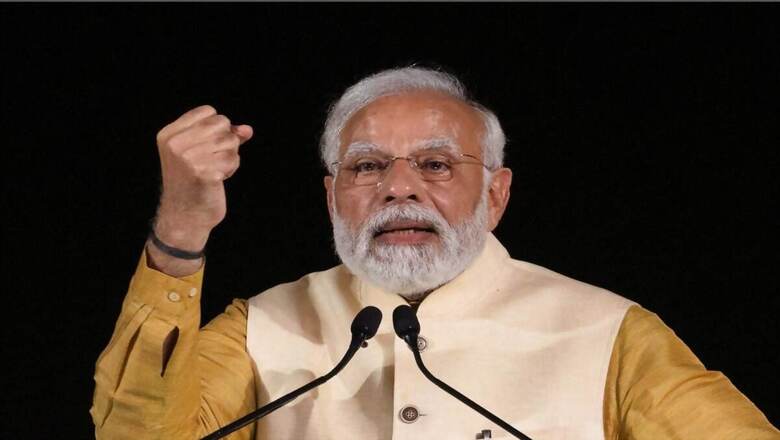
views
Prime Minister Narendra Modi and Bangladesh premier Sheikh Hasina on Saturday inaugurated a Rs 377-crore pipeline to transport diesel from India to northern Bangladesh, cutting costs and reducing carbon footprint.
The pipeline will start a new chapter in India-Bangladesh relations, Modi said at the inauguration.
Currently, diesel is supplied to Bangladesh through a 512-km rail route. The 131.5-km pipeline will supply up to 1 million tonnes per annum of diesel from Numaligarh in Assam to Bangladesh.
This would not just help save on transportation costs but also reduce the carbon footprint of moving the fuel, Modi said.
”This pipeline is especially important in the context of many developing nations struggling for fertiliser and energy security,” he said.
The construction of the pipeline project started in 2018. It is the first cross-border energy pipeline between the two neighbours. Of the total cost of Rs 377 crore of the project, Rs 285 crore of the Bangladesh section of the pipeline has been borne by the Government of India under grant assistance.
The foundation stone of this pipeline was laid by both Prime Ministers in September 2018. Numaligarh Refinery Limited has been supplying petroleum products to Bangladesh since 2015.
The Prime Minister thanked Hasina for her constant guidance on the project and expressed his wish to continue working with her for the benefit of the people of the two countries.
He said the work on the pipeline continued despite the pandemic and will help reduce the cost of transportation. Also, the carbon footprint of this supply will be lower than the alternative mode.
”Reliable and sustainable diesel supply will be beneficial for the agriculture sector. Industries will also benefit from it,” he said. ”The pipeline will aid faster development of Bangladesh and will be an excellent example of increasing connectivity between the two countries.” It is important that all pillars of connectivity, be it transport, energy, electricity grid or digital, should be strengthened, he said. Increased connectivity will aid people-to-people contact.
Modi said during the Covid pandemic, rail connectivity helped India supply oxygen and other essentials to Bangladesh.
In the energy sector, cooperation between two nations is highly successful. ”Today India is supplying more than 1,100 MW of electricity to Bangladesh,” he said.
Also, the first unit of the 2×660 MW Maitree thermal power project in Bagerhat district of Khulna division of Bangladesh has started and the second unit would also start soon, he said.
The project has been developed under India’s concessional financing scheme. It is being built by Bharat Heavy Electricals Ltd (BHEL) for Bangladesh-India Friendship Power Company Pvt Ltd. The first 660 MW unit started operations in October last year and the second similar capacity unit would go on stream soon.
”Our petroleum trade has crossed USD 1 billion,” he said referring to energy trade between the two nations.
The hydrocarbon cooperation between the two nations is across the entire value chain – from upstream oil and gas exploration to midstream transportation and downstream. ”This pipeline will further strengthen this cooperation,” he said.
Bangladesh is India’s top-most development partner and its largest trade partner in the region. The operationalisation of the Friendship Pipeline will enhance ongoing energy cooperation between the two countries and will further growth in Bangladesh, particularly in the agriculture sector.
The India-Bangladesh Friendship Pipeline (IBFPL) will transport 1 million tonnes per annum (MMTPA) of diesel to seven districts in Northern Bangladesh.
The pipeline will run from the Siliguri-based marketing terminal of the Numaligarh Refinery Limited (NRL) to the Parbatipur depot of Bangladesh Petroleum Corporation (BPC). The fuel transport deal between the two countries will be in force for 15 years with an option for further extension during subsequent phases on the agreement of both countries.
India and Bangladesh have been growing closer in relations as Bangladesh is quickly becoming India’s largest trading partner in South Asia.
The country is the fourth biggest market for Indian exports in the world, with exports being worth USD 16 billion. The two countries are currently in the process of formulating a Comprehensive Economic Partnership Agreement (CEPA), which could see India’s exports to the country double to USD 32 billion in the near term.
Read all the Latest News here

















Comments
0 comment